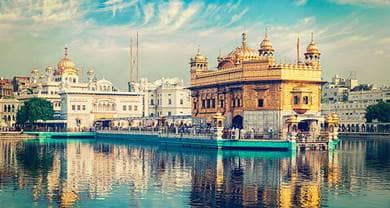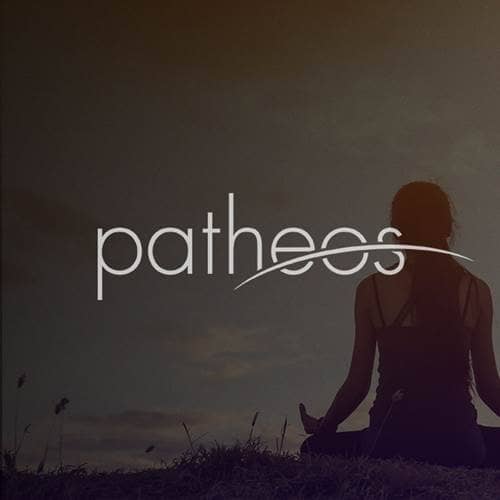- Trending:
- Forgiveness
- |
- Resurrection
- |
- Joy
- |
- Feminism
- |
- Afterlife

RELIGION LIBRARY
Sikhism
Suffering and the Problem of Evil
Written by: Rahuldeep Singh Gill
Sikhism teaches that the sense of "self" is the primary cause of suffering. When the individual puts the self at the center of everything, he or she loses reality; the Sikh truth is that each person is part of a much larger whole, a universe in which Kartar is the Master. However, Guru Angad (1504-1552) (the second Guru) taught that self-agency is also where the cure to suffering lies, by directing the self to selfless acts:
The I-me (haumai) is a nasty disease
But it also contains the elixir to cure
If He is so gracious
To make us hear the Guru's word
Nanak says, listen people
This is how pain is remedied. (GG 466)
By attuning the self to the Shabad (the divine word), the Sikh believes that he or she is ready to receive the divine grace that will inspire righteous living and lead to the path of liberation. Ethics, not belief, rule the Sikh agenda. Internal spiritual practice and external daily actions must go hand-in-hand.
Evil is indistinct from extreme self-centeredness. Tyranny and oppression, far removed from all notions of compassion and empathy, are the most evil acts. Sometimes people suffer because of the self-centered actions of others. Sikh history is full of stories of martyrs for the faith who were steadfast in their opposition to oppression.
In the face of oppression, Sikhs have a wide array of choices in response. Humility in bearing suffering is one response to oppression. This entails the ability to understand suffering as part of the human condition, and the enactment of the divine will. This also entails a powerlessness on behalf of those who suffer to surmount the oppression. Sikhs make appeals to Kartar for the benefit of all humanity, and the final part of the Sikh daily prayer of supplication (ardas) requests just that.
However, human beings also possess the ability to redress the wrongs of the world, and thus make the world more just and compassionate. In the long term, then, simply bearing others' self-centeredness and cruelty is no way to live. This is especially the case when the divine will bestows the ability for creative responses to suffering. Standing up for one's rights and those of the oppressed is another choice that also corresponds with Sikh notions of honor (pat) and justice (nian).
After the martyrdom of Guru Arjan (1563-1606) at the hands of the Mughal state, and amidst a succession battle for the Guru's office, Sikh savant Bhai Gurdas voiced an optimism for the unfolding of divine justice that encapsulates a Sikh response to those "false" powers that oppress others. Bhai Gurdas wrote:
Falsehood is like a deceitful dagger
Truth is a protective, iron shield
Falsehood is a perpetual enemy
Truth is a good, supportive ally
Truth is a brave warrior
Falsehood seeks false opportunity
Truth stands unwavering
Falsehood, fickle, trembles
Truth grabs and thrashes Falsehood
We look on from four directions, in all three worlds . . . (Var 30 stanza 10)
In one of his quatrains, Bhai Gurdas articulated the notion that suffering and self-sacrifice are a small price to pay for the ensured success of the community, and links liberation of the self to its ability to bear pain:
Cut every piece of my body: little nails on my feet to every limb
I give over my entire self to the Sikhs
Take every piece of me and burn it in a fire, grind it in a mill,
and let the ash fly in the wind, in every direction
Wherever the Sikhs' feet walk the Guru's path,
lay out my remains under them
Touching their feet, I will be forever engrossed
O! Compassionate and merciful ones, save this sinner thus! (Kabitt 672)
Elsewhere, Bhai Gurdas added that the pious are pure and caring, while it is the impious who commit unrighteous acts.
Whatever method one takes to respond to tyranny, whether humble submission or active revolt, a level of fearlessness is required. This fearlessness, itself a characteristic of the divine, will be bestowed by the divine on the devotee. Guru Nanak said that no one can scare the one who attains fearlessness through the Guru's word (GG 221). The ninth Guru, Guru Teg Bahadur (1621-1675), whose name means "Brave Swordsman," whose father girded two swords, and who himself was captured and executed by the Mughals, wrote that divine power is a blessing that can break all bonds and make anything possible to achieve (GG 1429).
In the modern era, there have been a number of Sikh individuals and organizations who have stood up on behalf of the uncared-for in society. For example, Bhagat Puran Singh (1904-1992) is considered the unsung Sikh equivalent of Mother Teresa, having established an orphanage and place of care for the disabled and destitute of Punjab. Today, Sikh hospitals, schools, and other organizations seek to alleviate the suffering of others. The institution of langar (free meals) at Sikh gurdwaras all over the world provides basic meals to the hungry.
Study Questions:
1. What is the cause of suffering in Sikh thought?
2. What are the choices in the face of oppression?
3. How do Sikhs today deal with the problem of suffering?










